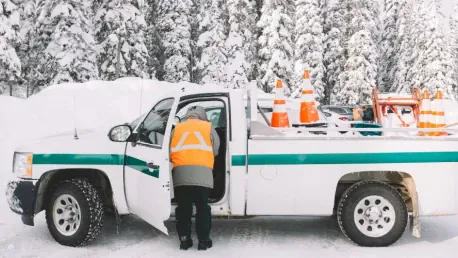The impact of Winter Storm Blair has been significant across several states, from Kansas to Delaware, causing widespread disruption in the trucking industry. The severity of the storm has led major carriers such as ABF Freight, Estes Express Lines, Old Dominion Freight Line, R+L Carriers, Saia, and XPO to take drastic measures by closing terminals and halting operations. States like Kentucky, Missouri, Illinois, Indiana, Ohio, West Virginia, Virginia, and Maryland have been particularly affected due to heavy snowfall. These weather events, while not uncommon, have wreaked havoc on fleet operations, presenting considerable challenges to maintaining operational continuity.
The effects of such weather disruptions extend beyond immediate operational difficulties, impacting the financial performance of these carriers. The interruptions caused by Winter Storm Blair are likely to influence quarterly earnings negatively, an issue that echoes past experiences. Similar weather patterns last year, including a major January snowstorm and subsequent hurricanes, underscore the persistent struggle the industry faces. Estes Express Lines continues to operate out of a leased facility after losing its Asheville, North Carolina terminal to a hurricane, exemplifying the long-term repercussions of extreme weather events.
In addition to immediate disruptions, the storm is poised to affect spot market rates, particularly increasing demand for temperature-controlled trailers essential for protecting freight from the cold. To navigate these challenges, experts advise that carrier executives maintain a daily regimen of monitoring weather conditions and providing drivers with appropriate safety resources such as snow cleats and real-time alerts. This proactive approach is crucial to mitigating the adverse effects on supply chains. There is a broad consensus within the industry about the significant influence of extreme weather. Continuous preparedness is essential to ensure operational continuity and driver safety, emphasizing the importance of being ready to tackle severe conditions efficiently.









